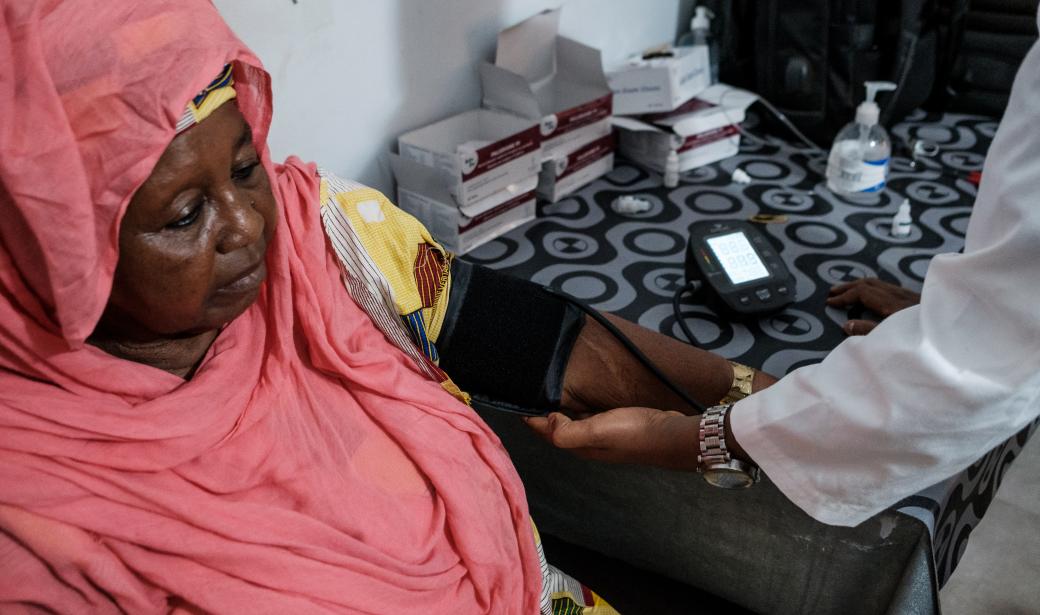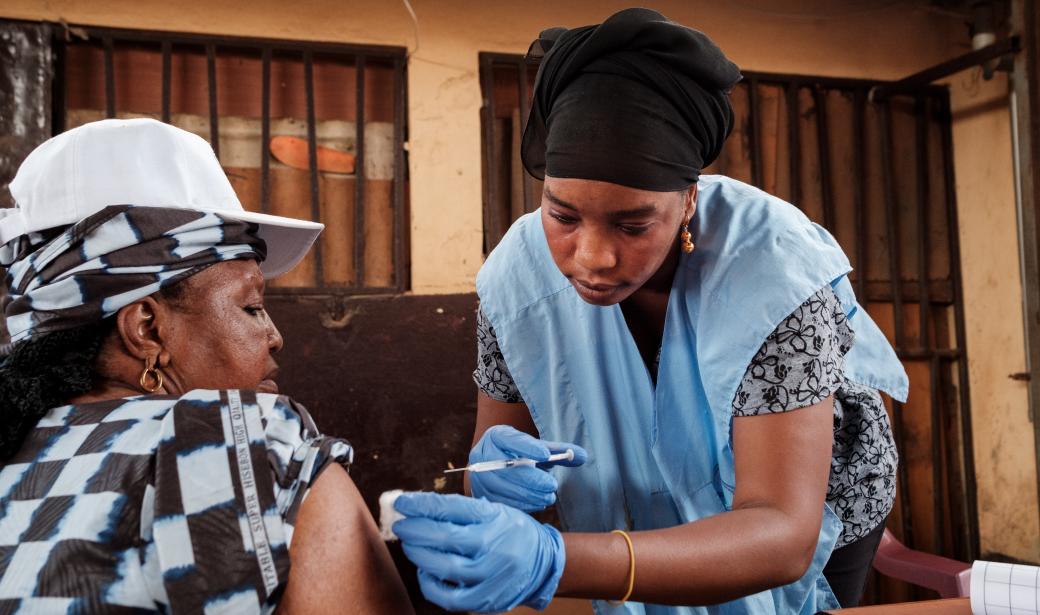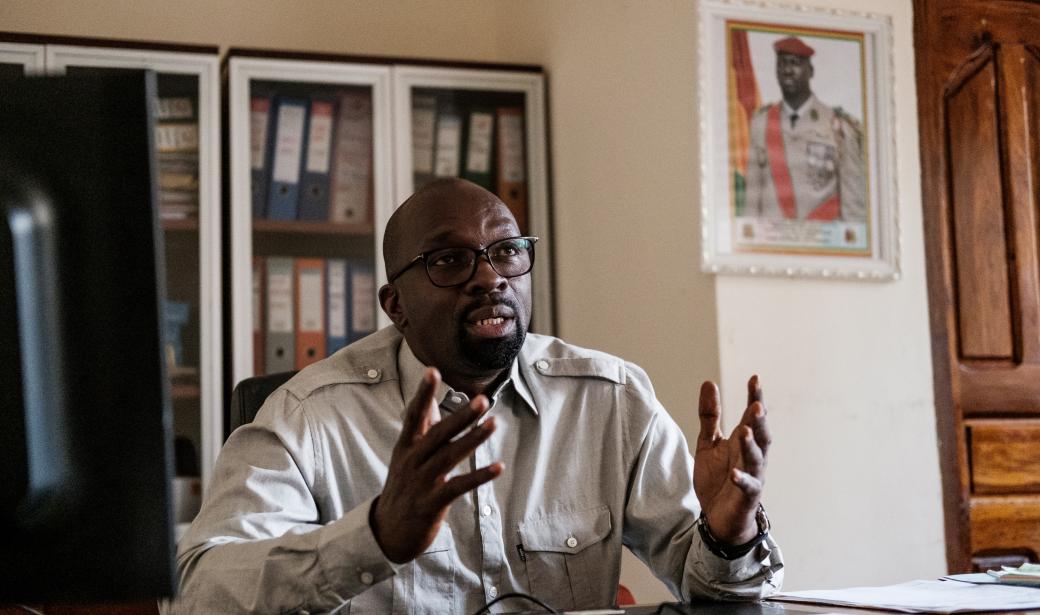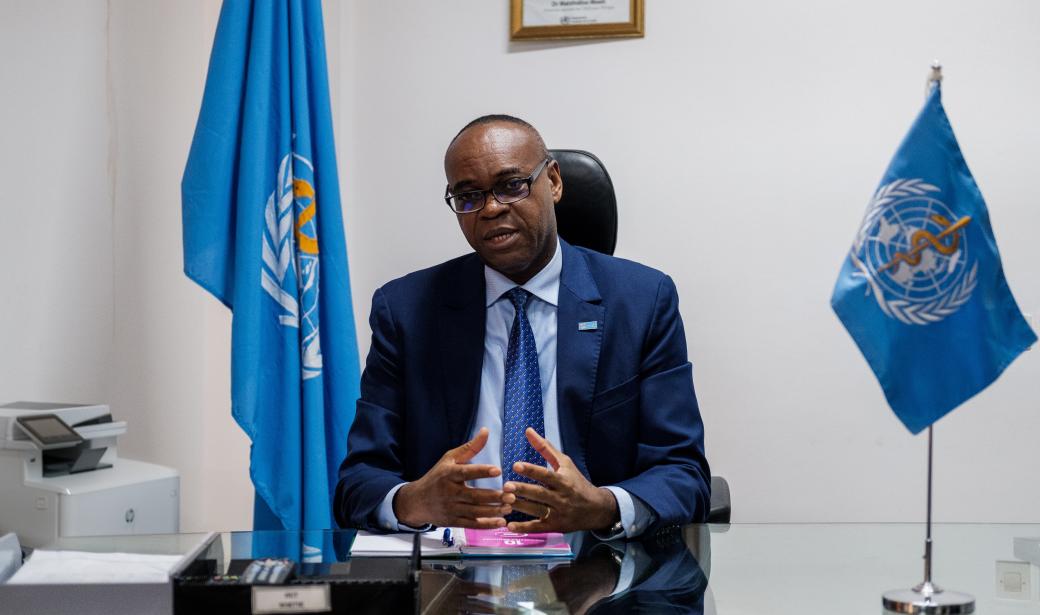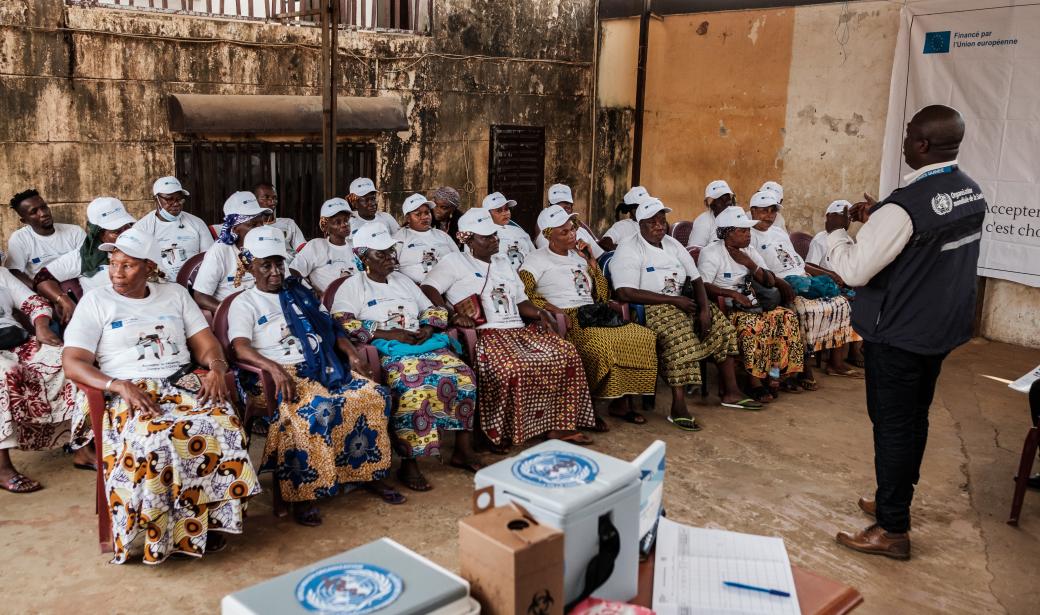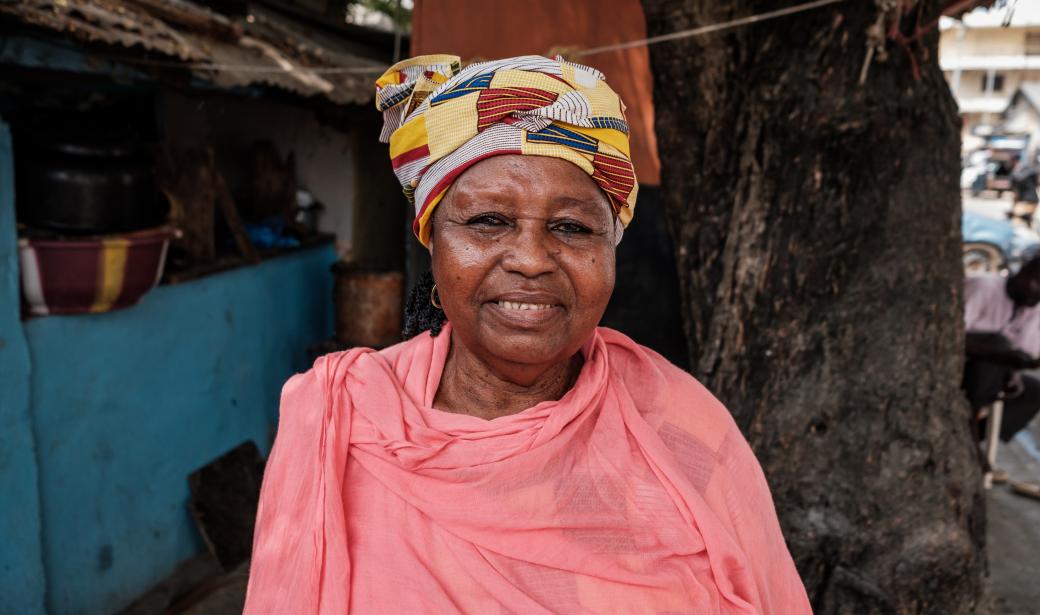Conakry – Since March 2022, Guinea has been gradually integrating COVID-19 vaccination into its expanded routine immunization programme to both protect populations at risk and strengthen the local health systems.
With the changing COVID-19 epidemiology over the past three years, World Health Organization has encouraged countries to make vaccination against the virus part of essential health services and primary health care. Guinea is among 16 countries in the African region to have integrated COVID-19 vaccination into routine immunizations.
In Guinea, the integration has been led by the National Coordination of the Expanded Programme on Immunization, with support from the National Agency for Health Security and funding from the European Union.
On the ground, the commitment of countless health workers, social mobilizers and community leaders has been key to expanding the vaccine’s coverage and ensuring that older adults and those with comorbidities are prioritized.
As of 20 April 2023, COVID-19 vaccination coverage in Guinea was around 36% for the population aged 12 years and above, and nearly 47% among people over 60 years of age.
Dr Mamadou Bhoye Bah, a general practitioner at the health centre, regularly attends to older adult patients with high blood pressure like Camara. "Hypertension is a real public health problem, especially considering the complications it causes,” he says. “In the majority of cases, people do not know their status when they come for consultation, so we receive these patients when the complications have already started to manifest.”
The medical staff at the health centre helped to allay Camara’s fears, highlighting the benefits of the vaccine. "The doctor talked to me about it every time I came for my check-up. I ended up agreeing to be vaccinated to protect myself,” she says. “The fact that I could do so right here in my local health centre was also a big factor in my decision, as it made it convenient and accessible.”
Across the country, 430 health centres are currently vaccinating against COVID-19. WHO has supported the supply of vaccines by air freight from Conakry to regional capitals, as well as providing technical support to help identify gaps on the ground across all 38 of the country’s health districts.
“Integrating COVID-19 vaccination into routine health service, implemented with support from the European Union, has been a real game changer,” says Dr Jean-Marie Kipela, WHO Representative in Guinea. “It has revived immunization programmes, which remain an essential component of robust health systems. We as WHO welcome this progress.”
Communications Officer
WHO Regional Office for Africa
Email: dialloka [at] who.int (dialloka[at]who[dot]int)
Chargé de la communication et de la promotion de la santé
OMS Guinée
Email : konatei [at] who.int (konatei[at]who[dot]int)



